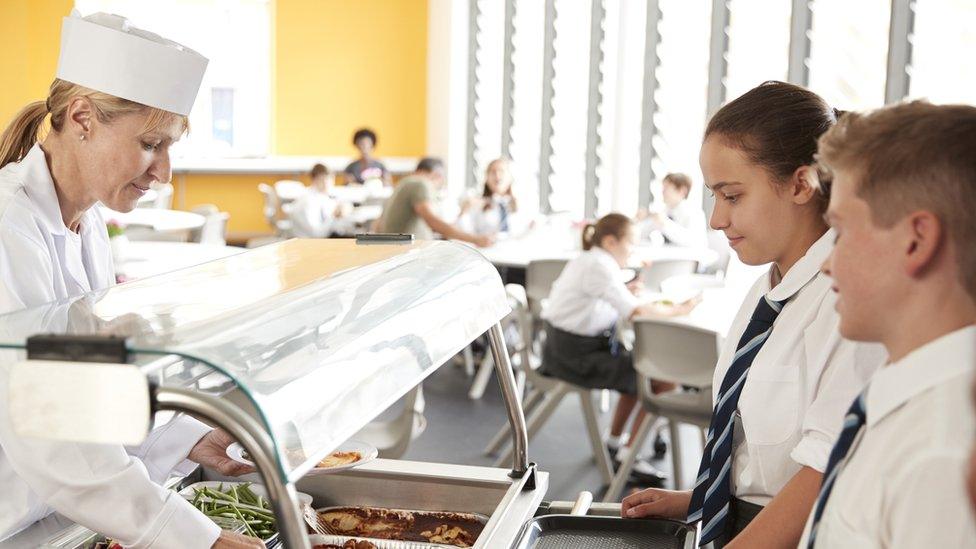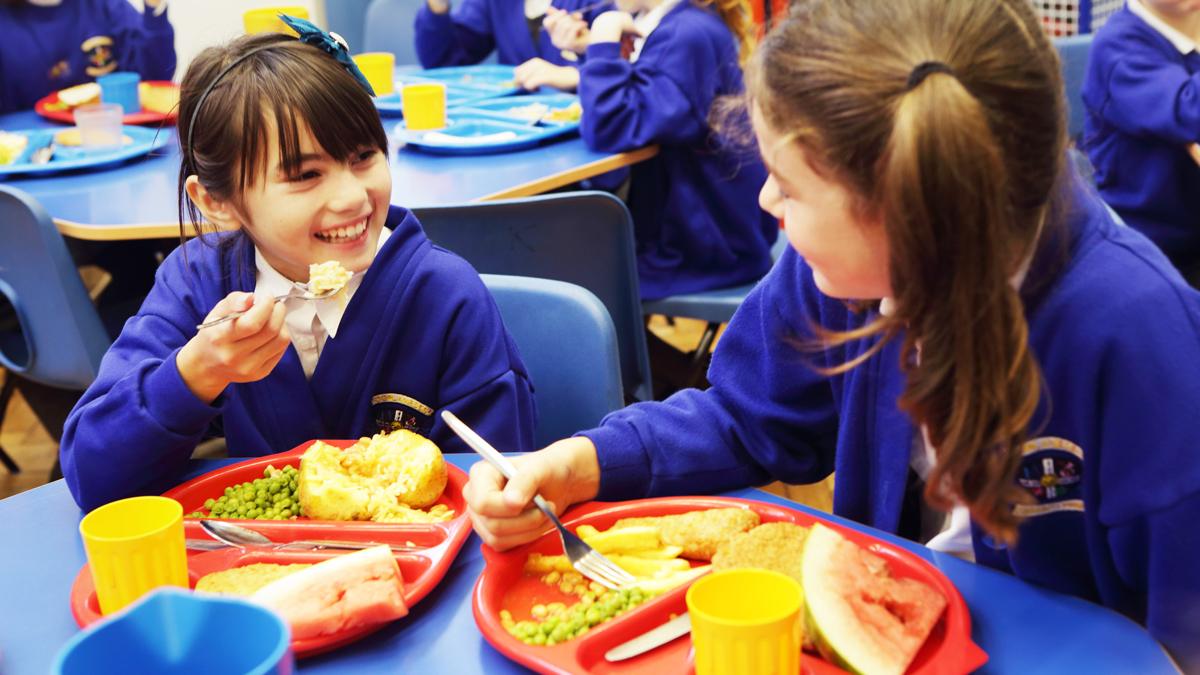Free school meals 'should be extended' for pupils from low-income migrant families
- Published

Free school meals should be permanently extended to the children of migrants in England who are currently ineligible for public support, charities say.
During the coronavirus outbreak the meal scheme has temporarily included some pupils whose families have "no recourse to public funds" (NRPF)., external
Sixty organisations have written to the education secretary asking him to permanently extend the scheme.
The government said it would continue while Covid-19 "impacts schools".
NRPF status is given to some migrants as a condition of their right to remain in the UK - generally those who have not yet qualified for permanent residency - and prevents them from receiving most government-funded benefits.
The government has already made a U-turn on providing free school meals outside of term-time.
That came after an intervention in June by Manchester United footballer Marcus Rashford, who campaigned for the government to offer free school meal vouchers over the summer holidays in England.
Now charities and trade unions have demanded ministers change their policy again, ensuring children from low-income migrant families with no recourse to public funds are added to the list of those eligible for free meals when schools reopen.
'Vital lifeline'
In a letter to Education Secretary Gavin Williamson,, external the 60 organisations, which includes the Children's Society, Unison, and Action for Children, said they "applauded" the decision to extend free school meals to some NRPF families in April.
However, they said they were "extremely concerned by the government's intention to stop providing free school meals to these children in the near future".
"The progress the government has made by extending this vital lifeline to NRPF families will be lost unless you make this change permanent," the letter says.
"We ask that you urgently provide clarity to these families ahead of the return to school in September by confirming that they will continue to be eligible for free school meals - fully and permanently."
Analysis by Oxford University's Migration Observatory, published on Friday, suggests more than 175,000 children in the UK are from NRPF families.
Sam Royston, director of policy and research for the Children's Society, said that those figures showed the number of children affected was rising, adding that "whether a child is able to eat should not depend on their parents' immigration status".
A Department for Education spokeswoman said: "We have temporarily extended free school meal eligibility to include some children of groups who have no recourse to public funds in light of the current unique circumstances many families face at this time.
"This will continue for the duration of the summer holidays and while the outbreak impacts schools."
Marcus Rashford: "I'm grateful the prime minister changed his decision"
Meanwhile, a law firm has also prepared a possible legal challenge, arguing that excluding poor children from free school meals because of immigration status is discriminatory and a breach of human rights.
Matthew Gold & Co Ltd. Solicitors has been instructed to challenge the eligibility criteria for free school meals.
In England, about 1.3 million children claimed for free school meals in 2019 - about 15% of state-educated pupils.
Children of all ages living in households on income-related benefits may be eligible, from government-maintained nurseries through to sixth forms.
Eligibility varies slightly between England, Wales, Scotland and Northern Ireland because the nations set their own rules.
During the coronavirus lockdown the government provided vouchers to families in England whose children qualified for free meals, which it then extended over the summer holidays.
Children eligible could receive a £90 food voucher to cover the six-week summer holiday, or £105 if their school had a seven-week break.
- Published2 July 2021

- Published16 June 2020
